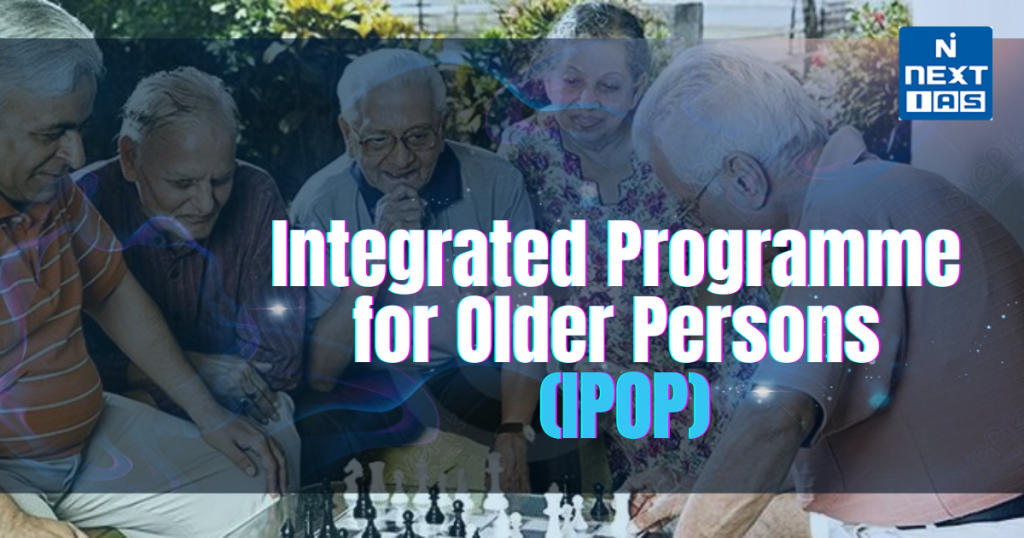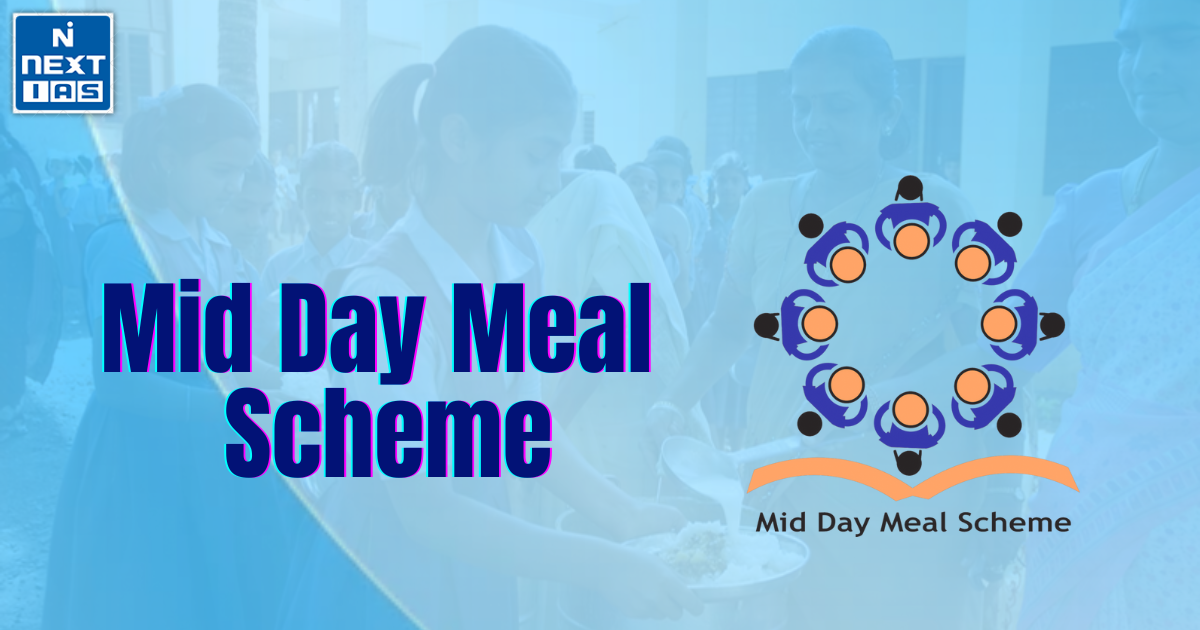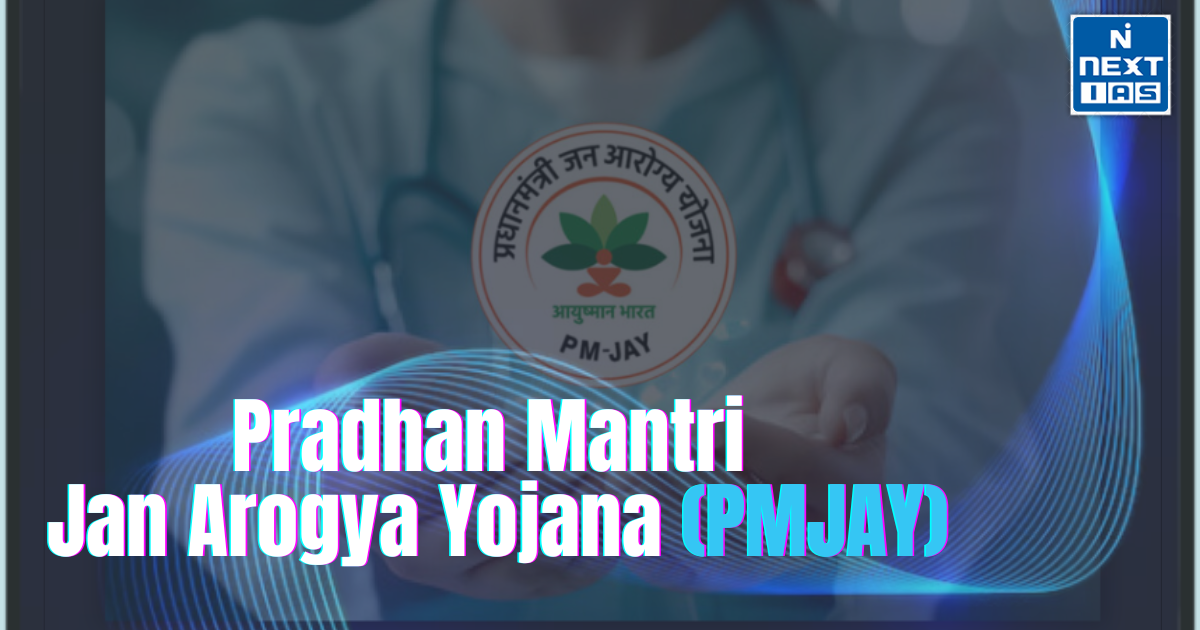
The Integrated Programme for Older Persons (IPOP) is a government scheme under the Ministry of Social Justice and Empowerment. It aims to improve the quality of life of senior citizens by providing financial assistance to NGOs for establishing and maintaining essential services like old age homes, healthcare, and day care centers for the elderly.
About The Integrated Programme for Older Persons (IPOP)
- The Integrated Programme for Older Persons (IPOP), launched by the Ministry of Social Justice and Empowerment, is a government initiative designed to improve the quality of life for senior citizens in India.
- The program provides financial assistance to Non-Governmental Organizations (NGOs), State Governments, and local bodies to establish and maintain various services for the elderly.
- These services include old age homes, day care centers, mobile medical units, and other support systems aimed at promoting the physical, emotional, and social well-being of senior citizens.
- IPOP primarily focuses on improving healthcare, providing shelter, and enhancing social security for senior citizens, especially those from disadvantaged backgrounds.
- The program also emphasizes the importance of integrating senior citizens into the community by offering opportunities for engagement and interaction.
- By facilitating services for the elderly, IPOP aims to ensure their dignity, independence, and active participation in society, contributing to their overall well-being.
Objectives and Eligibility of The Integrated Programme for Older Persons (IPOP)
The Integrated Programme for Senior Citizens (IPSrC) is a Central Sector Scheme implemented by Ministry of Social Justice and Empowerment, New Delhi. The main objective of the Scheme is to improve tje quality of life of the Older Persons by providing basic amenities like shelter, food, medical care and entertainment opportunities and by enfouraging productive and active ageing through providing support for capacity building of Government/ Non-Governmental Organizations/ Panchayat Raj Institutions/ Local Bodies and the Community at large.
Objectives
The assistance under the scheme is given to NGOs/ other organizations mentioned above for the following purposes:
- (i) Programmes catering to the basic needs of Older Persons particularly Food, Shelter and Health Care to the destitute elderly.
- (ii) Programmes to build and strengthen intergenerational relationships particularly between children/ youth and Older Persons.
- (iii) Programmes for encouraging Active and Productive Ageing.
- (iv) Programmes for providing Institutional as well as Non-Institutional Care/ Services to Older Persons.
- (v) Research, Advocacy and Awareness Building Programmes in the field of Ageing ; and
- (vi) Any other programmes in the best interest of Older Persons.
Eligibility Criteria
- NGO should be registered society / Public Trust with appropriate society bye-laws/ aims & objects clearly defined in the memorandum and managed by its own members on democratic principles.
- The organisation shall have a properly constituted managing body with powers, duties and responsibilities clearly defined and laid down in a written Constitution. It shall have an appropriate administrative structure and duly constituted managing/ executive committee.
Should have at least 2 years work experience in the field of related service.
Should not be run for profit with proven credentials and capabilities to handle such projects.
Significance of the Integrated Programme for Older Persons (IPOP)
The Integrated Programme for Older Persons (IPOP) holds significant importance in addressing the challenges faced by senior citizens in India. Its key contributions include:
- Improved Quality of Life: IPOP provides essential services such as old age homes, day care centers, and healthcare, ensuring that elderly individuals live with dignity and comfort.
- Social Inclusion: By promoting elderly participation in community activities, the scheme helps prevent isolation and promotes emotional well-being.
- Access to Healthcare: IPOP ensures that senior citizens, especially from disadvantaged backgrounds, have access to healthcare services, addressing issues like chronic diseases and mobility challenges.
- Support for Vulnerable Seniors: The program targets those without family support or living in economically challenging conditions, providing them with shelter and care.
- Empowerment and Independence: Through various initiatives, IPOP enhances the independence and self-reliance of senior citizens, allowing them to lead fulfilling lives.
- Community-based Solutions: The scheme encourages NGOs and local bodies to participate, ensuring that services are tailored to the needs of specific regions.
IPOP plays a crucial role in fostering a society where senior citizens are respected, supported, and integrated into the social fabric.
Lacunae of the Integrated Programme for Older Persons (IPOP)
Despite its objectives, the Integrated Programme for Older Persons (IPOP) faces certain lacunae that hinder its effectiveness:
- Limited Reach: The program’s implementation is often concentrated in urban areas, leaving rural regions with limited access to essential services for elderly individuals.
- Inadequate Infrastructure: There is a shortage of well-equipped old age homes, day care centers, and healthcare facilities, which limits the reach of the program.
- Dependence on NGOs: IPOP heavily relies on NGOs for the implementation of services, which can lead to inconsistencies in service delivery and quality across regions.
- Insufficient Funding: The funds allocated to the scheme may not be sufficient to meet the growing demands of the elderly population, limiting the number of beneficiaries.
- Awareness and Accessibility Issues: Many elderly citizens, especially in rural and remote areas, are unaware of the scheme or have difficulty accessing its benefits due to logistical challenges.
- Lack of Coordination: There can be gaps in coordination between various government bodies and implementing agencies, affecting the smooth delivery of services.
- Over-reliance on Institutional Care: The scheme’s emphasis on institutional care like old age homes may not always be the best solution, as many elderly prefer to stay with families or in community-based settings.
Addressing these gaps is essential for improving the efficiency and inclusiveness of IPOP, ensuring that all senior citizens receive the care and support they need.
Key Pointers about the Integrated Programme for Older Persons (IPOP)
- Launch: IPOP is an initiative under the Ministry of Social Justice and Empowerment to improve the quality of life for senior citizens in India.
- Target Group: Aims to support elderly citizens, particularly those from disadvantaged backgrounds or without family support.
- Objectives:
- To provide basic services like old age homes, day care centers, and mobile medical units.
- To enhance the physical, emotional, and social well-being of senior citizens.
- Financial Assistance: Provides grants to NGOs, State Governments, and local bodies for establishing and maintaining services for the elderly.
- Key Components:
- Establishment of old age homes, day care centers, and healthcare facilities.
- Distribution of mobility aids and medical care through mobile units.
- Creating awareness programs on the rights and needs of senior citizens.
- Focus Areas: Social integration, healthcare, shelter, and community engagement for elderly individuals.
- Significance: Ensures dignity, independence, and a better quality of life for elderly citizens, particularly those in vulnerable situations.
- Challenges: Issues like limited reach, inadequate infrastructure, and dependence on NGOs for service delivery.
This scheme contributes to the social inclusion and well-being of senior citizens, aligning with the government’s efforts to address the needs of an aging population.
Way Forward
The way forward for the Integrated Programme for Older Persons (IPOP) includes enhancing awareness, expanding coverage in rural and underserved areas, increasing financial support, improving healthcare services, and creating more age-friendly infrastructure. Strengthening monitoring, fostering partnerships with NGOs, and promoting skill development will ensure better implementation and outreach for senior citizens.
Conclusion
The Integrated Programme for Older Persons (IPOP) is a crucial initiative aimed at improving the quality of life for senior citizens. By providing financial support for healthcare, shelter, and social welfare, the program ensures their well-being, promotes active aging, and helps integrate older persons into society with dignity and respect.





